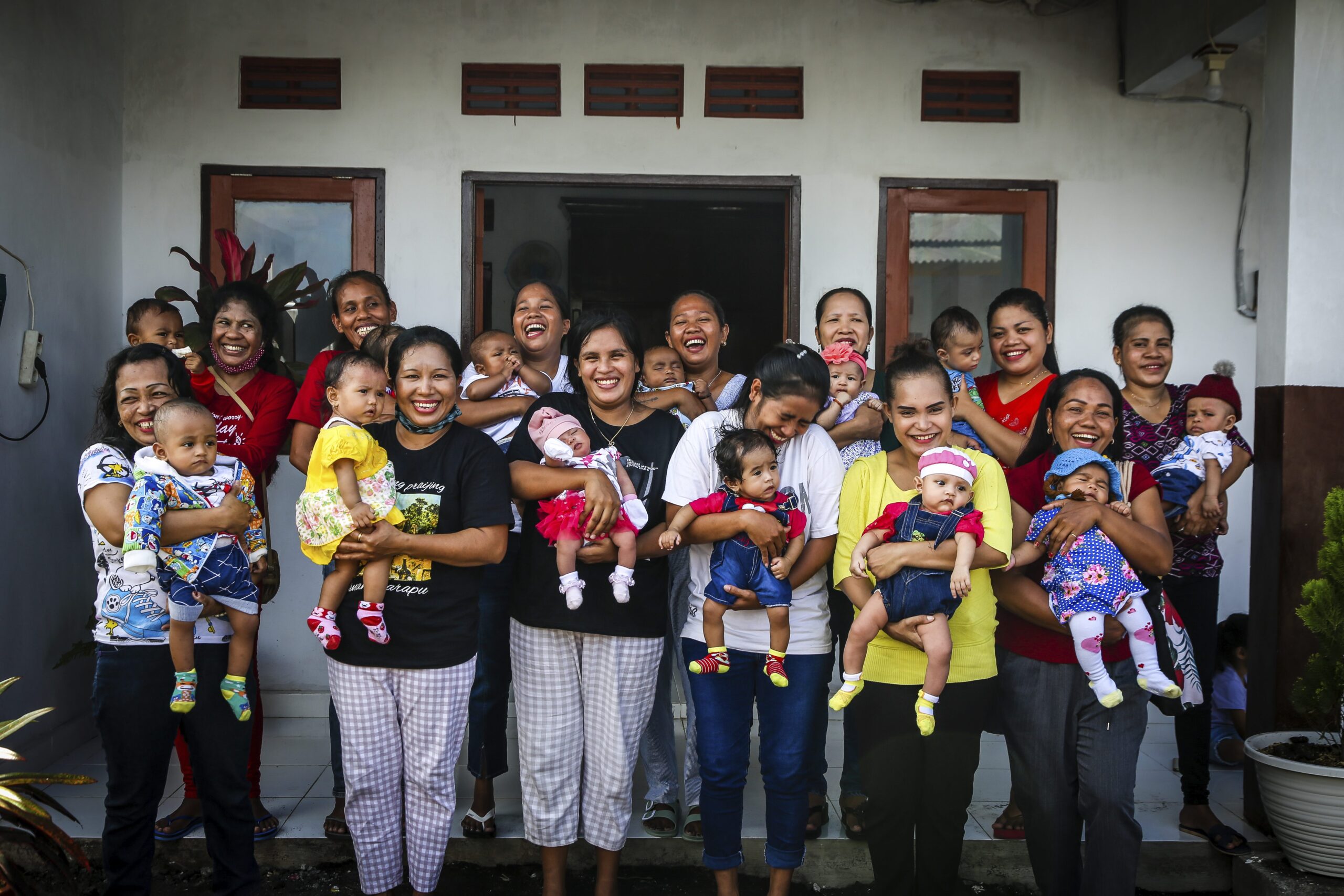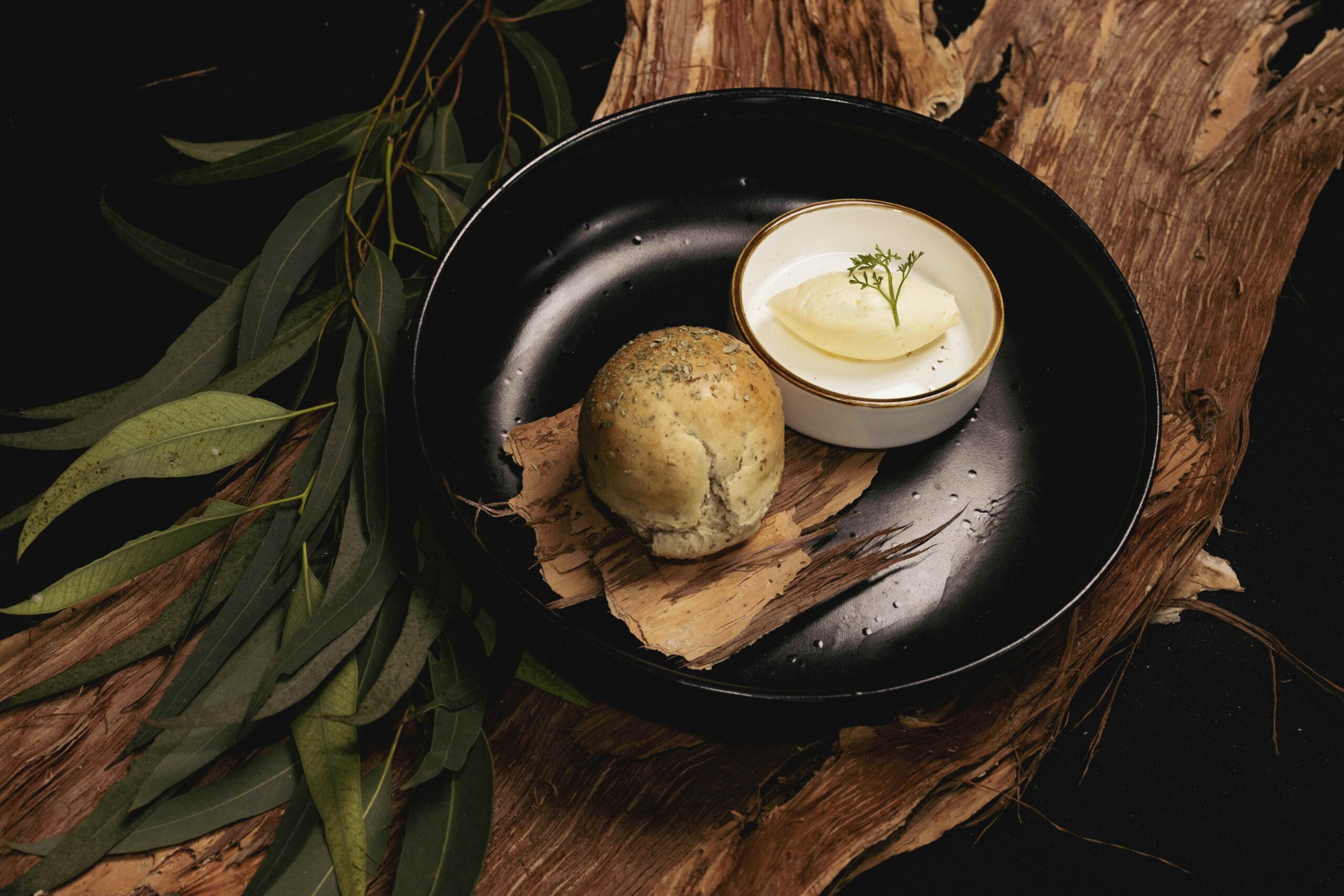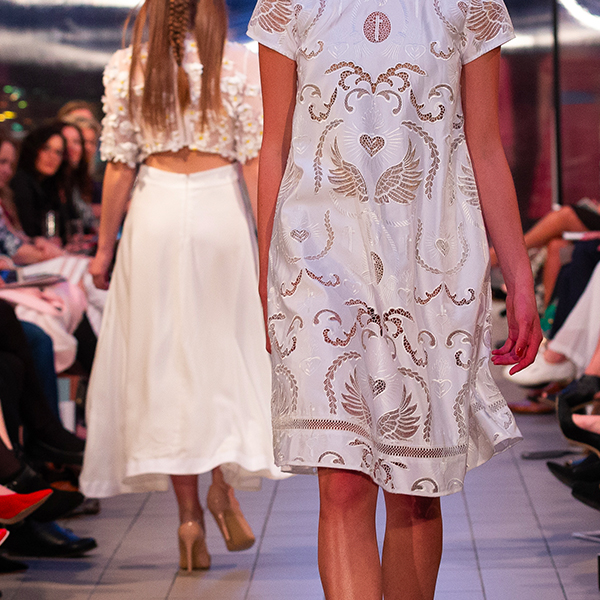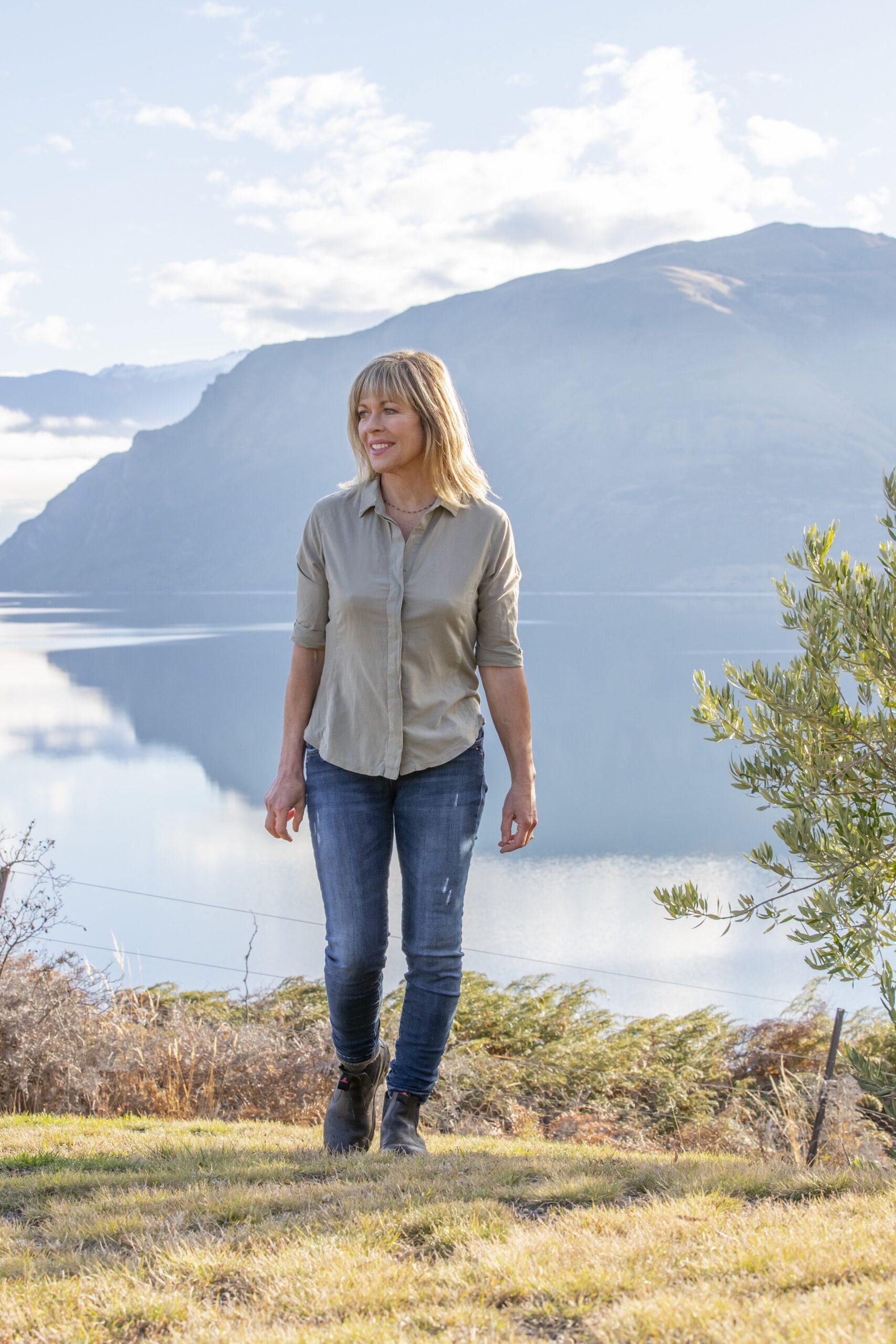Photography Helen Manson
The surprising story of an infant survival programme in Bali and the Kiwi women supporting it.
With its swaying palm trees, luscious tropical fruit and balmy weather, Bali in Indonesia is a holidaymaker’s paradise. It’s filled with tanned, glistening bodies, rock-bottom prices and adventures just waiting to be had with every scooter ride. That’s certainly the Bali I had in mind when I set off on a work trip as a humanitarian photographer. Lucky me, I thought! Usually, I find myself in the back blocks of a far-flung place on our planet such as Iraq, Syria or Ethiopia. Here, I’d be driving past Starbucks, eating at restaurants and I could maybe even buy something to take home from my travels! So why on earth was I heading there?
Because it just so happens that Indonesia has one of the highest maternal mortality rates in the world. And registered charity Tearfund’s Mums and Bubs project finds itself there delivering lifesaving support to mums and their babies born into poverty in the slums of this popular tourist destination for Kiwis. See, while many of us Kiwi mums are concerned with creating the best environment for our babies to thrive (think temperature-controlled rooms, video cameras in cribs and playing Mozart), too many mums around the world are just hoping their babies will survive.
In their earliest years, children born into poverty are especially at risk from disease and malnutrition. Because of this, many mums in the world’s poorest countries watch helplessly as their babies die in their arms simply because they don’t have access to the care they need. Moved by this plight, hundreds of incredible Kiwi women have come alongside groups of vulnerable mamas and their babies in Indonesia, to provide crucial interventions and care for the first year.
Think Plunket-style services for Indonesian mums – but supercharged.
First though, some quick context. In New Zealand there are about 11 nurses for every 1,000 people. In Indonesia, there’s two nurses for every 1,000 people. In New Zealand, we’re down to 3.4 deaths per 1,000 live births, but the neonatal mortality rate in Indonesia is approximately 16 deaths per 1,000 live births in Indonesia. Statistics boring you? Maybe this won’t – a newborn baby in Indonesia is five times more likely to die than a New Zealand-born baby. How unfair is that!?
Each infant survival project these Kiwi women support through Tearfund’s partner, Compassion, aims to reduce child mortality rates. The programme equips new and expectant mothers living in extreme poverty, with comprehensive care during their pregnancy, nutrition, guidance, advocacy, and the all-important post-natal support.

My first stop was meeting up with the Compassion Project director, Domingus, who explained about the types of families they work with: “The families in this Mums and Bubs project are really poor, earning around NZ$162 per month for an average family of five. Many are casual labourers barely scraping by. Sometimes children miss meals or are unable to go to the doctor. Most are migrants and many work as scavengers on rubbish dumps. Some live in temporary slum housing made from scraps.”
He continued, “Traditionally, child sponsorship starts at five. However, it became clear that many kids weren’t even making it to five. We started our Child Survival programme in direct response to that.”
Next, I sat down with Erni, the project implementer, to find out exactly what mums in this project receive. She told me, “When a mum is pregnant, we provide health checkups and advocate for a skilled birth attendant to be present during the birth. After the baby is born, we provide breastfeeding and family planning education. Every week, the mums receive training on things like nutrition, hygiene, disease prevention and mental wellbeing. Weekly visits are given to the mums as well as any immunisations, growth checks, nutritional supplements and food that is required. As their child grows, we provide skills training and literacy classes to help mums earn an income in the future.”
As I moved among the room meeting these mums and their beautiful babies, I couldn’t help noticing that despite the many practical benefits they receive, perhaps the most useful and meaningful contribution was the gift of a supportive group of mums in a similar situations sharing life together. I remember when I was a young mum, how important those groups were for my wellbeing. It was a space where we could commiserate around the lack of sleep and ask the important questions in life about our babies’ poop colour being normal or not. True story. This thought was confirmed by Cynthia, who told me she loved to sing and dance with her friends in the group. She also appreciated being able to share her problems, feel supported and hang out with them.
As we headed out to the homes of some of the mums, I noticed the narrow alleyways, rough-sawn buildings, cramped living conditions, lack of running water and overcrowded bathroom facilities all set amongst sweltering heat.
One 39-year-old mum named Wayan really stood out. Wayan has three kids – the youngest son is 10 months old. “When I was eight, my mum passed away and I had to come with my uncle to Bali to sell vegetables in the market,” she says.
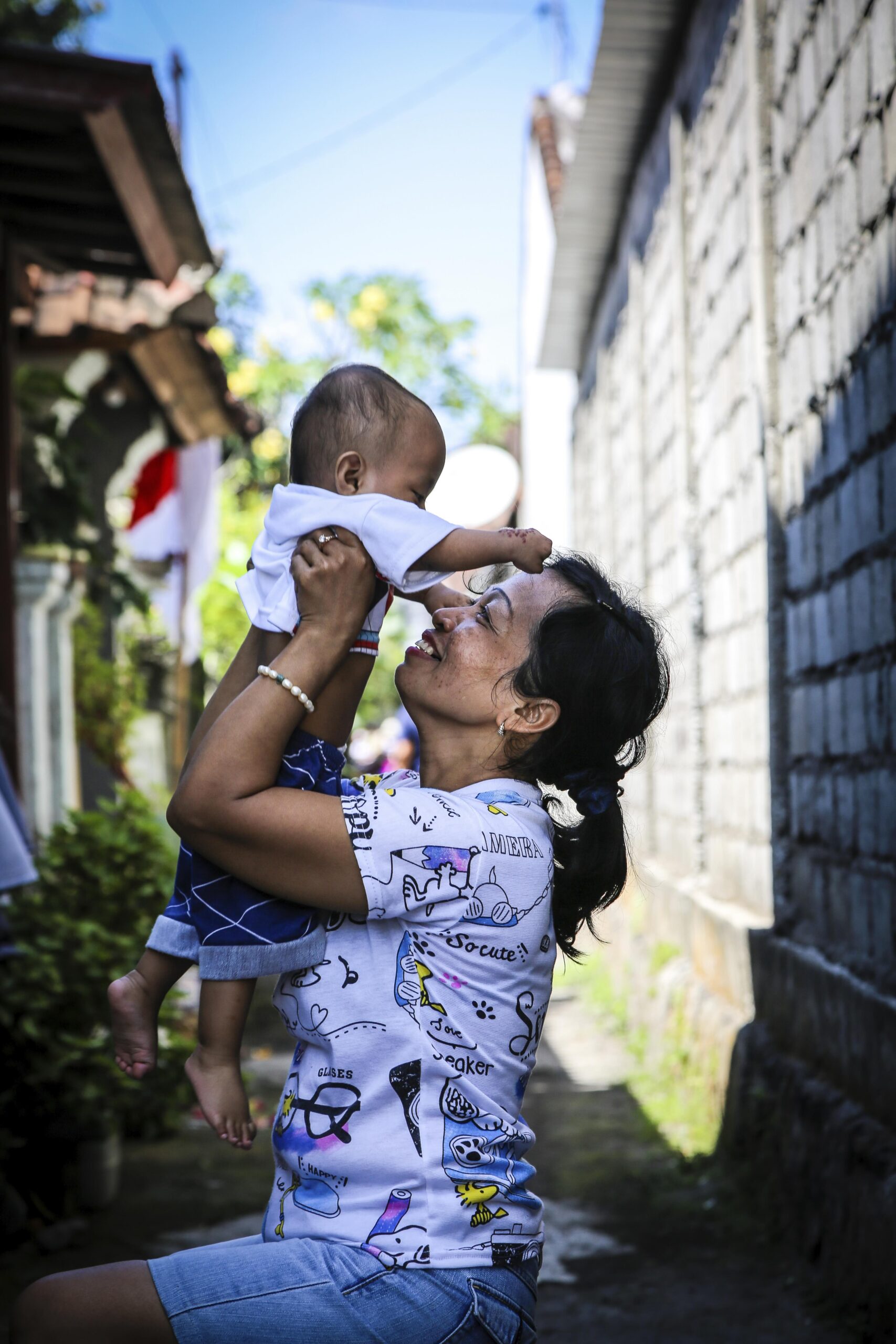
“It was so hard to look after all my siblings, away from my dad and without my mum. My youngest sibling was 18 months old. The hardest thing about it was that I lost my childhood. Running the household became my responsibility. My dad still worked, but it wasn’t enough to provide for the whole family, so I gave up school and went to the city to find a job to support my siblings through school. I was 12 at the time.
“I met my husband when I was working at the vegetable market. We had two girls together and then recently a little boy. He was born prematurely and weighed 5 pounds. His right hand had no fingers and I remember feeling a mix of shock, sadness and love. He was a miracle.
“I remember one day there was no food at my place. I was thinking to myself, what are we going to eat tomorrow? That same day Erni from Compassion came through the neighbourhood looking for mums that needed help like me. She gave me a week’s worth of healthy food, clothes for the baby and connected me with other women in a support group at the project. I’ve been going weekly ever since.”
Another mum I met was Yuli. She has two children, one aged four and the other five months old.
“My husband is the only one who can find work, and even then, it pays very little. I have received help from the Compassion project with my children via receiving food packages and knowledge around how to take care of my kids. I feel so grateful and touched when I hear that mums in New Zealand are supporting us. Without this project, I wouldn’t have enough food to feed my babies; I wouldn’t have enough resources to give clean water to my children.”
Without a doubt, this project has saved lives. Each of the mums whose homes I visited or whose photos I took, would hold our hands at the end of our time together, look me square in the eyes and say, please tell the New Zealand women: “Thank you. Thank you for loving our babies.”
The strength and resilience of the women I meet around the world never ceases to amaze me. What powerful stories they tell of the obstacles that they have overcome and the way they fight for a better future for their children.
Returning home, I was intrigued to meet and hear from the Kiwi mums supporting this project and their motivation to do so.
Kiwi mum, Zoe Howcroft shared with me, “I love the idea that we can form a circle of protection around these mums and their babies in Indonesia. I have three young children of my own, and I can hardly imagine what it must be like not to be able to feed them or provide the medicine they need to survive. I want to support them like I hope someone would support me.”
My trip to Bali reminded me once again of the common humanity we all share. I found the beautiful mums we met in the slums of Indonesia were just like me with kids just like mine. As different as our cultures and contexts might be, the universal gifts and challenges of motherhood united us. There’s really no difference in what we want for our children; only in what we can give them. As a proud supporter of this Mums and Bubs project myself now, I can’t help but feel like the heart of it is the camaraderie between one mother and another. And what a beautiful thing that is.
For more information on Tearfund’s Mums and Bubs Project through Compassion and how you can help, please visit tearfund.org.nz/mumsandbubs
